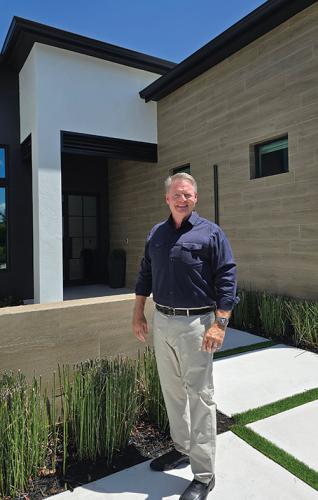
Marketing Luxury Properties: High End, High Touch
Marketing luxury properties requires top-notch service with a nod to exclusive lifestyles.
While showing a home to a high-net-worth client, Naples-based Greg Gorman, broker-associate of John R. Wood Properties in Naples, noticed them searching for something in the kitchen. “You’re looking for a Scotsman Ice Machine, aren’t you?” he asked. “I’m busted,” the client admitted, impressed he’d read their mind.
Gorman’s secret? He subscribes to luxury magazines, such as Architectural Digest, Cigar Aficionado and The Journal by JamesEdition, to learn which features are in demand for affluent buyers. Then, he highlights those amenities during showings and in property descriptions.
“We talk about the lifestyle, not the brick-and-mortar details,” he says. “We won’t say six bedrooms-six bathrooms, which is already in the MLS. Instead, we describe what it’s like to live there.” For inspiration, he asks his sellers what they consider the top-10 reasons to buy their homes. Then, he uses those insights to inspire listing write-ups. Similarly, in the monthly half-page ads his group takes out in their farm area’s private newspaper, they emphasize the lifestyle rather than featuring listings or sales figures.

Along with deeply understanding high-end real estate, here are some of Gorman’s other secrets for succeeding in this sector of the market.
Speak their language
Master the luxury lifestyle—and make this clear to clients and prospects. To fit in with this elite group, Gorman dresses like them: in resort wear. “Naples is a destination market,” he says. “Our clients show up in lululemon and golf attire,” he notes. “We want to model and mimic what they’re wearing. If I was in a coat and tie, I would lose them.” At the same time, he accessorizes with high-end shoes, jewelry and eyewear, since these are “the little tell-tale signs people in those circles recognize.”
Similarly, his team carries Balenciaga briefcases to listing presentations. Inside, clients find documents printed on premium paper, gold Christie’s International Real Estate pens and a writing pad. “Our affiliation with Christie’s gives us the tools we need to get us to the top of the pecking order,” Gorman says.
When it comes to his ride, Gorman recently drove a Genesis GV80, while his partner and team member, David Burke, favors a 1971 Mercedes-Benz. Since Naples is a car collector’s mecca, as Gorman explains, Burke’s antique wheels are a definite draw.
Follow the platinum rule
“We follow the platinum rule, not the golden rule,” Gorman says. Instead of treating others the way you want to be treated, treat them the way they want to be treated, he explains. Basically, figure out what types of interactions they’re looking for and meet those needs.
Sometimes, executives won’t want to be your friend. Instead, they’ll treat you like an employee, Gorman notes. “You have to be OK with that.” Since they’re likely busy, prepare to keep your words to a minimum. When negotiating with this group, work on becoming comfortable with terse phrases like, “So you have the data. This is the price. The ball is in your court. What would you like to do?”
As part of high-level customer service, Gorman’s team doesn’t scrimp on closing gifts. They’ll ask a florist to create a customized orchid arrangement (typically $400-$500) that meshes with their new home. Plus, they stay in touch.
Socialize with clients
Balance providing superior customer service with mingling, Gorman suggests. His group is known for the eight-plus “limited in scale, but memorable” events they host each year. Crucial to his marketing, these get-togethers build trust, says Gorman. Plus, they grow his database: Gorman asks each guest to bring someone his team doesn’t already know. As a result, they’ve netted between two and six referrals from each event they’ve hosted.
To optimize the fun and to forge connections, Gorman gravitates toward cooking classes, which he finds ideal for group bonding. As a way to encourage his guests to meet new people, he’ll suggest they swap seats. Plus, he’ll make introductions based on commonalities, for instance, if two clients attended the same university or work in the same profession.
In the luxury market, it’s the social awareness and ability to read situations that matter the most.
Dina Cheney is a Connecticut-based freelance writer.
